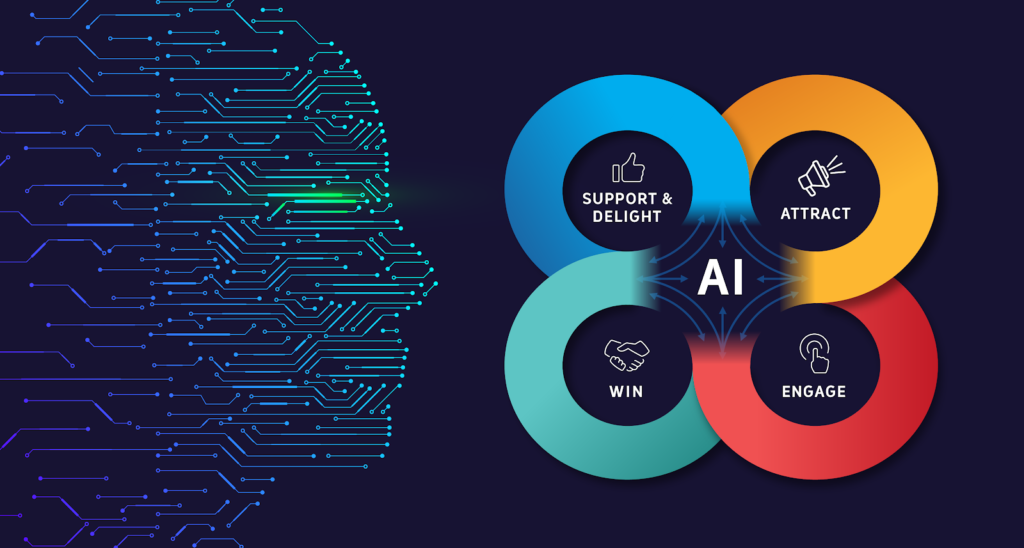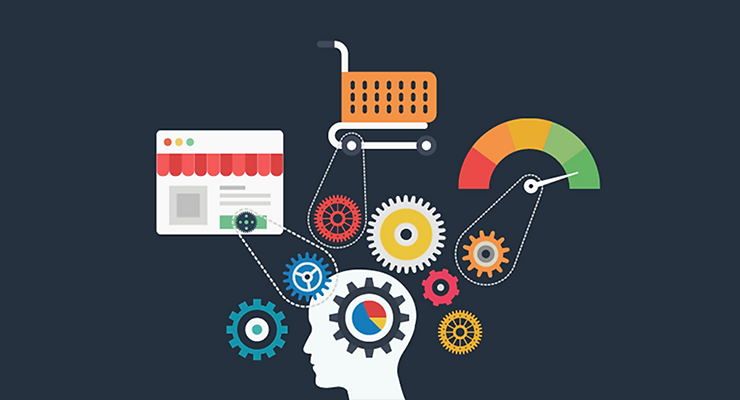How AI Can Help Your Brand Enhance Marketing Efficiency.
Many businesses and the marketing teams that support them, are rapidly adopting intelligent technology solutions to improve operational efficiency while improving the customer experience. These smart solutions often come in the form of artificial intelligence (AI) marketing platforms. Through these platforms, marketers gain a more nuanced and comprehensive understanding of their audience. The artificial intelligence insights gleaned through this optimization process can be used to drive conversions while reducing the workload of the marketing teams.
Artificial Intelligence technologies can make automated decisions based on data collection, data analysis and additional observations that determine the market trend. Data and customer profiles help AI tools to communicate, send automated emails and tailored messages to customers without any human intervention and ensured complete efficiency.
There are several ways AI can help brands improve their marketing efficiency –
- AI can help automate tedious and time-consuming tasks like data entry and analysis, allowing marketers to focus on more important strategic tasks.
- AI can aid in targeted advertising by using algorithms to analyze customer data and identify the most effective marketing channels and messages for specific customer segments.
- AI can support customer service by providing instant, personalized responses to customer inquiries by using chat bots. This improves the customer experience and builds brand loyalty.
- AI can assist content creation by generating personalized, relevant, and engaging content that resonates with audiences and drives engagement.
- AI also offers tools for automating mundane tasks such as tracking leads and emailing potential customers.
- Analyze large amounts of data quickly and accurately: AI algorithms can quickly process and analyze large amounts of data, including customer data, market trends, and campaign performance metrics. This allows marketers to make data-driven decisions and optimize their campaigns in real-time.

Using AI in marketing requires research and planning. Companies need to ensure cost minimization and also achieve maximum from AI investment in a specific period of time. When launching a new marketing program, one needs to make sure the AI marketing platform does not exceed the allowed data usage limit under the guise of data personalization. Ensuring privacy standards are set and programmed into AI marketing platforms as needed, to ensure compliance and consumer trust. To determine customer preferences, external trends and other factors, digital marketers will need humongous amount of data which will train the AI marketing tool to launch successful AI-enabled campaigns. AI marketing programs need to be accurate and make effective decisions, they consume a huge amount of data, which needs to be cleansed and maintained well- if failed will lead to them not being insightful and accurate.
Most digital marketers find AI marketing tools to be particularly effective when integrated into their existing marketing strategy, rather than being deployed as a standalone tactic. AI marketing tools create opportunities to streamline steps in marketing strategies that are currently labor intensive. For example: data analysis or risk of inaccuracy. By integrating AI to fill in these “blind spots”, digital marketers can not only leverage these powerful visionary methods to take their marketing to the next level, but also build on the foundation of effective digital marketing methods they’ve used in the past.
Every company that we can think of has implemented the use of AI for their marketing needs. For example, HubSpot provides a CRM platform with all kinds of tools and software that any one needs for marketing, sales, content management and service. It provides a marketing software that helps to target the right audience, convert more visitors into customers, and run comprehensive inbound marketing campaigns at scale. All this in one powerful, easy-to-use platform. Its time saving and also provides customization.
Another one is Starbucks ,it uses predictive analytics to identify and understand customer needs. But how do they collect this customer data? Loyalty cards and their mobile applications allow Starbucks to track customer purchase details with specific date and time information. Starbucks can use predictive analytics to target and engage its customer base through personalized recommendations and special offers from nearby stores. With the help of AI, it is easy to understand customer preference from complex data and automate mundane tasks. At least it’s better than doing it manually which is very time consuming and limiting creativity for marketers.

Artificial intelligence is therefore becoming a key tool in every marketer’s toolbox. From creating unique and personalized approaches, to enriching customer experiences, to curating content that customers can interact with, AI covers it all. It is well known that companies using AI have a definite competitive advantage. Imagine the impact rapid implementation will have on your marketing. AI in marketing works hand-in-hand to understand your customers and enrich their experiences.
Overall, using AI in marketing helps brands improve the efficiency and effectiveness of their marketing efforts, leading to better results and a stronger competitive advantage.
